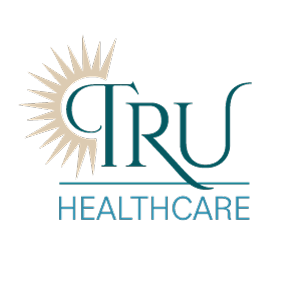With the holiday season fast approaching, the first thing that comes to mind are the joys the holidays bring. Time with friends, family traditions and the wonders of the season all bring great joy to many. But for an estimated 16 million American adults that had at least one major depressive episode last year, the holidays are not so joyous. The added stress and expectations at this time of year can throw anyone into a funk, but when you also consider a variety of factors including the fact that there is less daylight causing a decrease in the body’s ability to produce vitamin D, it really opens up the doors for a flood of emotions.
According the the Mayo Clinic website, depression is a mood disorder that causes a persistent feeling of sadness and loss of interest. Also called major depressive disorder or clinical depression, it affects how you feel, think and behave and can lead to a variety of emotional and physical problems. Depression is more than just the blues or a rough patch in life. It is a serious mental health condition requiring treatment, a recovery plan and most of all, understanding and support from those around you.
If you or your senior loved one is feeling symptoms such as feelings of sadness or emptiness, loss of interest or pleasure in normal activities, or feelings of failure, worthlessness or guilt most of the day, nearly everyday, then it may be time to seek help.
Since many people think that it is a normal part of the aging process and a natural reaction to illness or social transition, depression often goes untreated in seniors. Symptoms to watch for might be vague complaints of pain, memory problems and can also be a side effect of commonly prescribed medications.
Depression may show itself in different ways with different age groups. Children and teenagers are experiencing life’s emotional ups and downs as a part of growing up, but for those with depression the downs are more severe. Children and teens with Attention Deficit Hyperactivity Disorder (ADHD) are at a higher risk for depression, as well as someone who has experienced considerable stress or trauma.
Depression is a devastating and debilitating mental health disorder for the millions of Americans who suffer from it. With an early detection, diagnosis and treatment plan, many people can get better and have good control of their depression. The National Alliance on Mental Illness (NAMI) lists several options for treatment plans on their website, here is a sampling:
- Medications including antidepressants, mood stabilizers, and antipsychotic medications
- Psychotherapy which includes cognitive behavioral therapy, family-focused therapy and interpersonal therapy
- Light therapy, using a light box to expose a person to full spectrum light and regulate their melatonin levels
- Mind, body and spiritual approaches such as prayer, faith, and meditation
HealthStar Home Health offers support to families dealing with mental health disorders, whether it is an adult in the family, a senior loved one you are caring for, or children and teenagers, we have a program to help you. Our Adult Rehabilitative Mental Health Services (ARMHS) offers assistance and support to adults 18 years of age and older who have a qualifying mental illness and are eligible for medical assistance who want to improve their life. Our ARMHS program is not case management or traditional therapy, but instead is mental health services aimed at teaching you skills for managing your mental health symptoms and can get you through the busy, unpredictable holiday season.
We also offer mental health services to children through our Children’s Therapeutic Services and Supports (CTSS) which features cultural sensitivity and empathy to the underserved people in our communities and regions.
Don’t let the Minnesota winter or upcoming holiday season get you down. If you need support, get it! Don’t be ashamed or afraid to ask for help. If we all do our part to help remove the stigma associated with depression and mental health illnesses, it will go a long way for those who suffer daily. Spending quality time with family, friends and being active in your community is helpful in staying healthy, but sometimes you need a little more support. Contact HealthStar Home Health directly by calling 888-689-3391 and ask for a professional in the Adult Rehabilitative Mental Health Services (ARMHS) department or the Children’s Therapeutic Services and Supports (CTSS) department.

